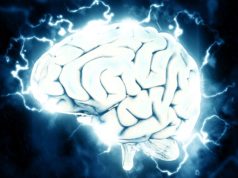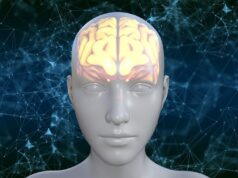
A new randomised controlled trial presented at the North American Neuromodulation Society (NANS) virtual meeting (15–16 January), presented by Robert E Gross (Emory University School of Medicine, Atlanta, USA), reports an average increase of 19% in word recall for traumatic brain injury (TBI) patients when receiving stimulation of the lateral temporal cortex (LTC).
According to figures presented, over four million Americans live with TBI, with the most common complaint from these patients being impaired memory. Gross claims that memory function is directly related to level of disability and productivity. He further states that recovery of verbal memory function after injury predicts long-term reductions in disability, the ability to return to work, and on the job performance.
According to Gross, existing treatments for TBI lack efficacy, reporting that at present there are no US Food and Drug Administration (FDA) approved therapies for TBI patients. Gross states that although cognitive rehabilitation is sometimes used, which involved teaching some patients strategies for remembering information, such as calendar information and setting phone reminders, “its impact on memory function is limited, and it is often not reimbursed by insurance due to a lack of efficacy.”
Gross further states that while some off-label pharmaceutical interventions are used as well, these have not been proven to be effective in randomised control studies.
Gross cited a previous related work from his collaborators and him, published in Nature Communication in 2018, which demonstrated that closed-loop stimulation of LTC reliably improves memory function and was used as a proof-of-concept for this current study.
In this 2018 study, machine learning classifiers were trained on the brain activity in 25 patients. According to Gross, the classifiers learned to predict which words would be recalled and which would be forgotten during a list learning task. Using a randomised controlled blinded study design, participants were tested on lists of words with and without stimulation, with each participant acting as their own control. Participants didn’t know which lists were stimulated. Researchers administered stimulation to the LTC only when a participant’s memory was predicted to fail. They observed an 18% improvement in word recall with closed-loop stimulation of LTC. In contrast, closed-loop stimulation outside of the lateral cortex showed temporary impairments of list learning ability.
A follow-up study tested closed-loop stimulation of temporal cortex in eight epilepsy patients with a history of TBI. Compared with age matched controls, these participants had one standard deviation impairment in memory function. As in their previous study, machine learning classifiers were trained on the brain activity from these patients, and then stimulation was administered to LTC when the participant’s memory was predicted to fail.
Gross reported that patients were presented with a 24 lists of 12 words one at a time, and asked to recall those words after a delay. Participants typically recalled three to six items per list. Half of the lists would be randomly assigned to be stimulated and the participant’s brain activity was recorded during item presentation, and later sorted into recalled and forgotten classes. These data were then used to train a logistic regression classifier to predict whether a given word would be recalled based solely on the electrophysiological recordings for each subject.
According to Gross’s team’s findings, the classifier performed “well above chance” discriminating between words recalled and non-recalled words with an area under the curve of 0.64, which Gross reports as statistically significant.
Across all eight subjects an average improvement of 19% was observed in word recall for stimulated lists compared with non-stimulated lists. Gross reported a significant variability in memory enhancement across this cohort, ranging from a 5% decrease in memory in one subject, to a 40% increase in another. Gross attributed this variability in efficacy to the variability of the placement of stimulating electrodes, further noting that greater data will be needed to acquire the optimal stimulation target.
Gross commented on the significance of this memory increase: “Patients with a moderate to severe TBI have a 0.8 standard deviation memory function compared with age match controls. A 19% improvement in memory is equivalent to a 0.4 standard deviation improvement which translates to a greater than 50% restoration in memory function for the average TBI patient.”
Disclosure: Robert E Gross has received a consulting fee from Abbott Labs, Medtronic and has equity in Nia Therapeutics.













